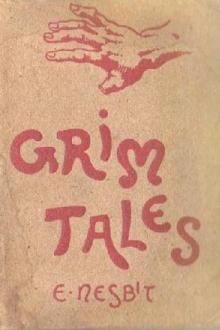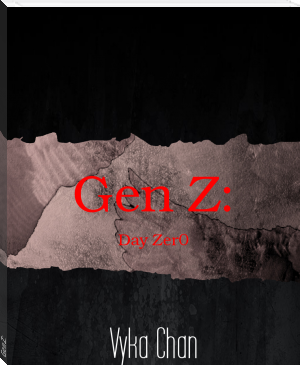Callisto 2.0, Susan English [i love reading .TXT] 📗

- Author: Susan English
- Performer: -
Book online «Callisto 2.0, Susan English [i love reading .TXT] 📗». Author Susan English
109
The countdown reached zero, and all eyes were fixed on the video feeds.
For the first few seconds, everything looked good. Then the visual feeds from the internal sensors went blank. I studied the screen on my personal computer tablet, which was tracking the data from the sensors. No warp bubble. We were dead in the water.
“Aw, hell,” I heard Marta say.
Naomi turned to me, and I shook my head. “I’m so sorry, Calli,” she whispered.
I scrolled back to examine the data for the first few seconds. Yes, it was there! The bubble had held for about three seconds, then collapsed.
Hadley was staring at her own computer tablet floating in the air in front of her, disappointment etched into her face. I touched her arm, and she turned to me. “I knew it was too much to expect, but I hoped—” she stopped.
“I know, me too, but we got some good data.” I indicated my computer with a nod.
“We can do our analysis and make improvements. It’s only the first trial.”
Andrea rubbed Hadley’s back gently, and she responded with a wan smile.
Diana stood up. “The team will need to review the data, but from what I can tell,”
she held up her own computer tablet, which had the same data as mine and Hadley’s,
“the bubble held for several seconds. This is the first time anyone has ever created a macroscopic warp bubble! As far as I’m concerned, this prototype was a tremendous success.”
Everyone clapped and looked over at Hadley and me. Hadley leaned over to whisper in my ear. “We need to analyze these data.”
“I’m with you,” I whispered back.
Everyone made their way to the other side of the partition, where the socials were held. As balls filled with low-carbonation champagne were being passed around, Hadley and I snuck out the door and into the hallway.
When the door closed behind us, Hadley forced a smile. “It wasn’t a complete disaster, was it?”
“No, not at all,” I said, my eyes back on my screen. “Let’s go to the lab, I’m anxious to examine the data from the warp field.”
“Yeah, and the warp bubble collapse, too.”
We still had a long way to go, but we were one step closer.
◆◆◆
After such a promising start, our research into the warp field seemed to be at a standstill. Hadley and I pored over the data from the prototype, but we couldn’t figure out why the warp bubble had collapsed. This wasn’t necessarily a bad thing—the warp bubble had to collapse when the vessel reached its destination, to return to “normal”
space—but we needed to control the timing of the collapse from inside the warp bubble. We had built the control mechanism based on my theory, the one Hadley had been so excited about. The collapse was programmed to occur exactly ten minutes after 110
the formation of the bubble. Instead, what had transpired was premature and uncontrolled.
The setback was nothing new for either of us. We were trained scientists, and both knew the history of scientific discovery was fraught with failures. No, not failures exactly, but dead ends, frustrations, and years of working with little or no results. After all, we had each been in the field of warp technology for years, as had many scientists before us.
But we had been so tantalizingly close. And what Diana had said was true—the test was a success. Never before, as far as we knew, had anyone been able to produce a macroscopic warp bubble, and three seconds, the time the bubble had remained stable, was actually a long time.
What could have caused the instability? We had accounted for quantum fluctuations, and the negative energy containment was solid. Hadley had already figured out the fundamental process before I arrived on the ship, employing novel ceramics designed by the materials science team. Since then, we had worked together to make sure the containment was robust and stable. So, we concluded it must be something else.
We reexamined the existing literature, and kept Annie busy searching all the available databases to see if any new articles in warp technology had been published. But research in the field was scant—only a few of us were deep into the work. Although my postdoc had been at the Alcubierre Center for Space Technology, named in honor of the father of the working theory of the warp drive and one of the first people to recognize that a solution to Einstein’s field equations in general relativity allowed for a warp field, the truth was most scientists viewed this work as pie in the sky, and preferred to pursue more fruitful lines of research. Even at the Alcubierre Center, only a handful of scientists were actively following the dream of its namesake, most were focused on more “realistic” methods of propulsion, such as field-emission electric propulsion or, like Marley, ion drives.
The California government had a small team dedicated to warp drive research, and, had it not been for Diana, I would have been a member of that team by now, but they hadn’t even touched the negative energy confinement problem. They were still struggling with the mechanisms to create the amount of negative energy necessary to sustain a warp field.
That was why I had been so excited to learn about Hadley’s work, and couldn’t believe she was at the experimental stage. We discussed publishing our findings, but agreed it was too soon. We wanted a stable, working prototype first.
I spent much of my time in the lab module park, admiring the flowers. It was a good place to think. On Saturdays and Sundays, when not otherwise occupied, I was in Naomi’s lab. Naomi would almost always spend the weekends on the Moon with Evan, and so she had asked me to keep the mice company, and I was happy to comply. Being with them gave me a sense of tranquility. It was the oxytocin in my bloodstream, and I wasn’t complaining. What a delightful hormone: the love hormone. And it was true, I 111
loved those little creatures. My production of oxytocin was fairly high in those days. I felt so happy, so at peace.
It was amazing how well everyone got along. I never saw anyone really angry.
Naturally, we had our professional frustrations, and occasional personal or relationship woes, with lovers, family, friends, workmates. We were human, after all. But as a team, we were harmonious. It was a complete departure from life on Earth, where strife, animosity, and cutthroat competition was the norm. My initial suspicions about the Foundation community, of it being too good to be true, had faded into oblivion, because the love I felt, both from and towards my colleagues, was genuine.
I wasn’t sure why things worked so well, and maybe it was true, a woman-only staff created a more amicable environment, especially with Annie’s careful selection of potential crew. Even so, Diana and Izumi deserved their fair share of the credit. Diana was a gifted leader. She always knew when to give a word or two of encouragement, when it was better to leave us alone, and her sense of humor and relaxed attitude made for a tranquil working atmosphere. Izumi had a real intuition for human psychology, it could have been her training in anthropology, but I suspected it was an innate talent. In any case, being a part of the Foundation, I felt a tremendous sense of purpose and belonging.
112
When I got to our lab one morning, Hadley had a big smile on her face. “You look happy,” I said.
Her smile got even bigger. “It finally happened.”
“What?” I asked, feeling my heart accelerate. Maybe she’d had a breakthrough! I propelled myself over to her console, expecting to see a solution to the warp bubble collapse. But her monitor wasn’t even on.
“The kiss,” she said, blushing.
I grinned. “Ah, the kiss.”
Since their first date, Hadley had been spending most evenings with Andrea on the observation deck, late at night when the station was quiet. A couple of nights ago, Hadley had decided she didn’t want to wait any longer, and tried to kiss Andrea, but Andrea had put a finger on Hadley’s lips, stopping her. “Not yet,” she had whispered.
We spent the next two mornings trying, albeit unsuccessfully, to figure out what Andrea was thinking.
“Tell me everything!” I said to Hadley. “I want all the details.”
Hadley’s face was radiant. “Okay, last night I went to the observation deck, as usual, hoping to see Andrea.”
“Okay.”
“I was surprised because it looked like the room was empty, and normally Andrea gets there before I do.”
“Uh-huh.”
“And for a minute I thought, well, that’s it, she doesn’t want to see me anymore.”
“Oh, Hadley.” I gave her a sympathetic look.
“No, wait.” She held up a hand, palm out. “Let me finish!”
I arched my eyebrow.
“Okay, then, when I closed the door behind me, the lights went out, and the room was filled with all these holographic images of flowers. Then Andrea was beside me and took me in her arms. She said there weren’t enough flowers in the Universe, but she hoped these would suffice for now. Then she kissed me.” She traced her lips with her fingers. “I never kissed a woman before.”
“I know! How did it feel?”
“It was different than kissing a man. Softer. It was nice.” She smiled,





Comments (0)